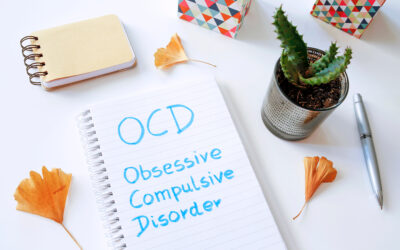Trauma is a complex and deeply impactful experience that can have long-lasting effects on a person’s mental and emotional well-being. While each individual’s journey through trauma is unique, it is important to explore the underlying causes that contribute to its development. By gaining a deeper understanding of these causes, we can begin to navigate the path towards healing and resilience. We will delve into the various factors that can lead to trauma and shed light on this critical topic.
What is trauma?
Trauma refers to an emotional and psychological response to a distressing or disturbing event or experience. It usually happens in response to an event that exceeds a person’s ability to cope, leaving them feeling helpless, threatened, or in danger. Many define traumatic experiences as those that are life threatening, however, this is not always the case. Trauma can also be defined as enduring sets of conditions that create an environment of powerlessness or inability to protect the self.
Traumatic events can vary widely and may include situations such as physical or sexual assault, natural disasters, accidents, war, witnessing violence, experiencing the death of a loved one, or ongoing abuse or neglect. What constitutes trauma can differ from person to person, as individual experiences, resilience, and coping mechanisms play a role in determining how an event is processed and its impact.
Trauma can manifest in various ways, including:
Psychological Symptoms:
These may include intrusive thoughts or flashbacks, nightmares, severe anxiety, feelings of guilt or shame, emotional numbness, difficulty concentrating, irritability, or hypervigilance.
Emotional Symptoms:
Trauma can evoke intense and overwhelming emotions, such as fear, sadness, anger, shame, or a sense of detachment from oneself or others.
Physical Symptoms:
Trauma can have physical manifestations, such as fatigue, insomnia, headaches, muscle tension, digestive problems, or changes in appetite.
Behavioral Changes:
Trauma can lead to changes in behavior and coping mechanisms. This may include avoidance of reminders of the trauma, social withdrawal, substance abuse, self-destructive behaviors, or difficulties in relationships and trust.
Seeking support from mental health professionals, such as therapists or counselors, can be beneficial for individuals who have experienced trauma. With appropriate treatment and support, it is possible to heal and regain a sense of well-being and resilience in the aftermath of trauma.
What causes trauma?
Childhood Adversity:
Childhood experiences play a pivotal role in shaping our overall well-being. Adverse childhood experiences such as physical or emotional abuse, neglect, household dysfunction, or witnessing violence can have a profound impact on a person’s development.
Violence and Traumatic Events:
Acts of violence, including physical assault, sexual abuse, domestic violence, or witnessing a traumatic event, can be deeply traumatizing.
Accidents and Natural Disasters:
Trauma can also arise from unexpected accidents or natural disasters, such as car accidents, severe injuries, or experiencing the devastation of hurricanes, earthquakes, or wildfires.
War and Conflict:
Living through war, armed conflict, or being a refugee exposes individuals to ongoing violence, loss, displacement, and instability.
Intergenerational Trauma:
Trauma can transcend generations, as the effects of trauma can be passed down from one generation to another.
Systemic Oppression and Discrimination:
Marginalized groups often face systemic oppression and discrimination, which can result in chronic stress and trauma.
Understanding the causes of trauma is a crucial step towards supporting individuals on their healing journey. By recognizing the diverse factors that contribute to trauma, we can foster empathy, compassion, and create a more trauma-informed society. Through education, awareness, and support, we can work towards preventing trauma and facilitating healing for those who have experienced it.
What to expect for trauma treatment?
In trauma therapy, you can expect a safe and supportive environment where you can explore and process the effects of your trauma.
The initial phase of trauma therapy typically focuses on establishing safety and building a therapeutic alliance between you and your therapist. Your therapist will prioritize creating a safe and non-judgmental space where you can openly share your experiences, emotions, and concerns. Together, you will collaboratively set goals and discuss the therapeutic approach that best suits your needs. Your therapist will help you navigate any overwhelming emotions or distress that may arise during sessions, ensuring that you have the necessary tools and coping strategies to manage them effectively.
Once a foundation of safety and trust is established, trauma therapy may involve exploring and processing the traumatic experiences. Your therapist will guide you through various evidence-based techniques and interventions tailored to trauma treatment, such as trauma-focused cognitive-behavioral therapy (TF-CBT), eye movement desensitization and reprocessing (EMDR), or somatic experiencing. These approaches aim to help you understand and reprocess the traumatic memories, thoughts, and emotions that may be causing distress. Throughout this process, your therapist will provide guidance, support, and validation, helping you make sense of the trauma’s impact on your life and developing healthy coping mechanisms. The pace and intensity of trauma exploration and processing will be determined by your readiness and comfort level, ensuring that the therapy process is empowering and respects your boundaries.
Remember, every individual’s journey in trauma therapy is unique, and the specific therapeutic approach may vary based on your needs and preferences. Open communication with your therapist is crucial, as it allows you to collaborate on the treatment plan and adjust the therapeutic process according to your progress and goals.










